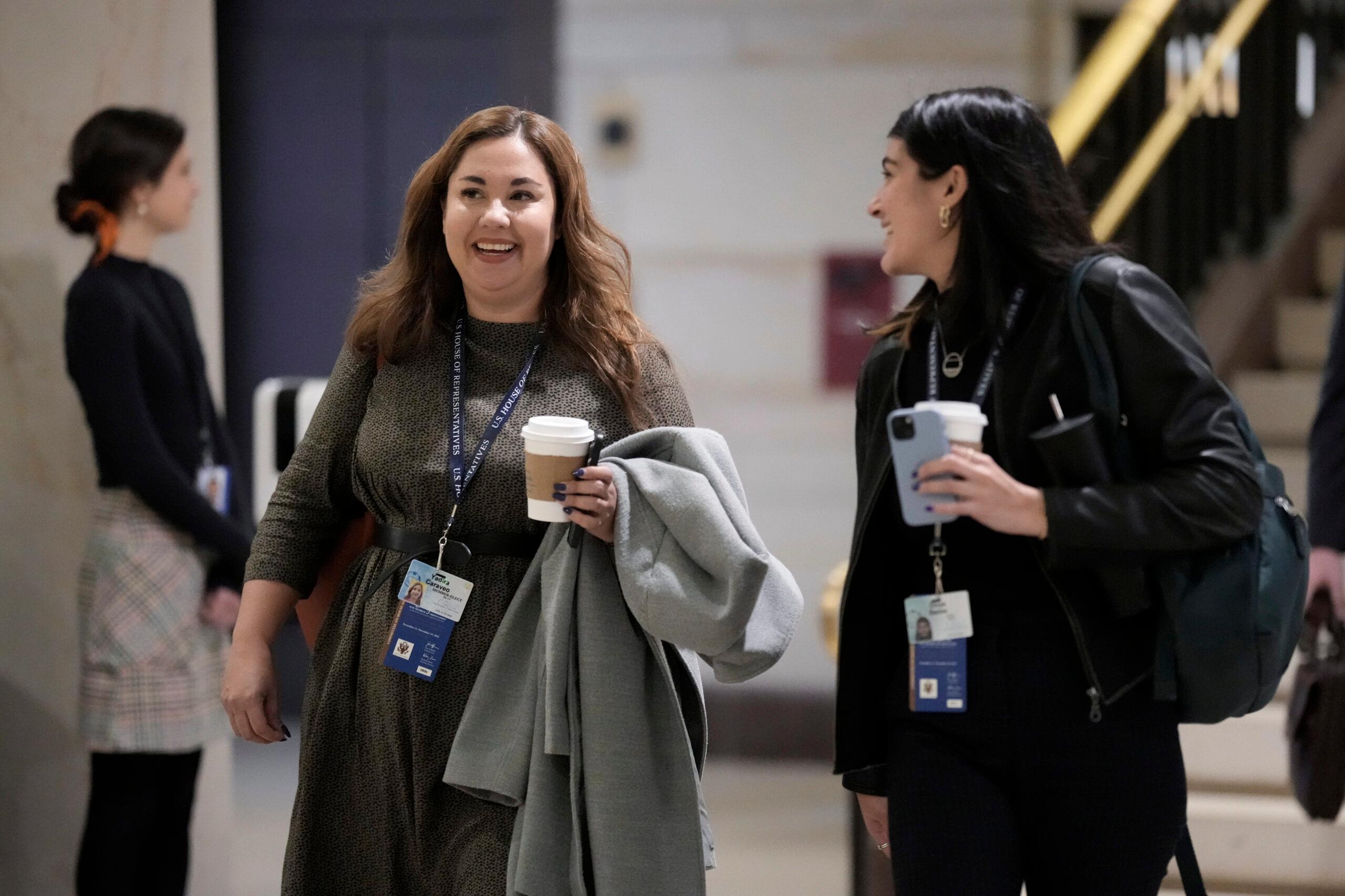
Updated 8:20 p.m. September 30, 2023
In a surprising turn, the U.S. Congress passed a short-term funding measure Saturday, with a strong bipartisan vote of 335-91 in the House and 88-9 in the Senate, narrowly avoiding a government shutdown.
Most of Colorado’s congressional delegation voted for the continuing resolution.
“Funding the government is a basic responsibility of Congress,” said Democratic Rep. Yadira Caraveo. “By passing this spending bill, we can keep the government open and finally turn to the issues that matter most to our constituents: lowering costs for working people and putting our country on the right track for future generations.
Democratic Reps. Jason Crow, Joe Neguse, Diana DeGette and Brittany Pettersen also voted for the measure, as did Republican Rep. Doug Lamborn.
The measure funds government through Nov. 17 at current spending levels, and includes $16 billion in disaster aid. It also has FAA and National Flood Insurance Program extensions, and keeps a pay bump for federal wildland firefighters for the length of the CR. Those were all set to expire on October 1.
It does not include either the border security provisions that Republicans sought or the additional military aid for Ukraine that Democrats and Senate Republicans wanted.
Crow, who has been part of congressional delegations to Ukraine, was disappointed that the funding wasn’t included, “but we’ve got to fund our own government.”
He added the Biden administration will continue to provide equipment and supplies that have already been allocated, “so there’s no pressing need to immediately pass” more aid, which gives Congress more time to negotiate.
However, the lack of Ukraine funding led Sen. Michael Bennet to briefly delay the Senate vote late Saturday evening. He did eventual go on to vote yes, as did his Colorado colleague, Sen. John Hickenlooper.
“I objected tonight to proceeding to the Continuing Resolution because it failed to provide additional money for Ukraine. Senate Leadership needed to reaffirm our bipartisan commitment to sustain funding for Ukraine," said Bennet in a statement after the vote. "The Senate Leadership has released such a statement, and, as a result, I voted to keep the government open."
When asked by reporters about his objection, Bennet noted his own mother, who was Jewish, was born in Warsaw just a few years before the Nazis invaded Poland, and most of her family was killed in the Holocaust. “As the Ukrainian people continue to give their lives, the United States has an essential and unique role to lead the free world in Ukraine's defense. The future of democracy is at stake."
Now attention turns to whether both chambers can achieve a full spending deal before the 45 day stopgap measure runs out.
Lamborn said the time will give the House a chance to pass its remaining eight appropriations measures. "A shutdown hurts our servicemembers, their families, and countless others in Colorado's Fifth District and across the nation," he said in a statement. “House Republicans will continue to work to get border security and a debt reduction commission in the final appropriations bills while cutting wasteful spending."
Colorado GOP Reps. Lauren Boebert and Ken Buck voted against the temporary stopgap measure. Both had been vocal about their concerns about the level of government spending and insistent that the House should pass 12 appropriations bills before September 30.
“We should have forced the Senate to take up the four appropriations bills that the House has passed,” said Boebert after the vote. “That should have been our play.”
She said that the past week, when House Republicans muscled through four spending measures, proved to America that the House could do its work.
Republican House leaders put out a schedule for its members about how they plan to tackle the remaining spending bills, but Boebert doesn’t think the chamber will need the full 45 days. She thought they could do it in a week or two, ”unfortunately we were never given that timeline as an option.”
“I want to break the bipartisan muscle memory of continuing resolutions and omnibus bills. This is not how we should fund the federal government,” she said.
Saturday breakthrough
The surprising turn of events started Saturday morning, after Republicans failed to coalesce around any plan that would avert a government shutdown and could pass with Republican votes alone.
“We’re going to do our job,” Speaker Kevin McCarthy said after the morning meeting with his conference. “We’re going to be the adults in the room and we’re going to keep government open.”
House leaders quickly offered the 45 day “clean” CR under suspension, which would require support from two-thirds of the chamber. (Clean here means that it holds spending levels steady and doesn’t include new policy requirements.)
On Friday, a conservative 30-day funding measure that had cut some programs by 30 percent and included Republican-backed border security provisions failed on the floor after 21 conservative members of the Republican conference voted with Democrats to kill it.
After struggling to bring Republicans together for weeks, McCarthy’s about-face Saturday caught many by surprise.
House Democrats tried to stall for time to read the 71-page text by calling for a motion to adjourn, as well as voting in the well of the chamber. House Democrats were also stalling to see if Senate Democrats would be able to advance their version of the CR first.
In the end it was Senate Republicans who helped break the logjam by publicly stating they would not help advance their chamber’s bipartisan measure and would instead wait to see what the House would pass.
The vast majority of House Democrats and a majority of House Republicans voted for the CR.
The Senate also passed the continuing resolution overwhelmingly. Except for the lack of funding for Ukraine, it was fairly similar to one they were working on this past week. It was sent late in the evening to President Biden for his signature.
While first term Rep. Brittany Pettersen is glad that Congress was able to come together to avert a shutdown, she is worried that in “45 days, we’re going to be in the same position.”
“So we need to start working now to solve this,” she said. “Actually funding and not dealing with this again in November.”
It was a sentiment echoed by Democratic Rep. Diana DeGette. “While a last-minute Hail Mary worked this time, the process that’s played out over the last few weeks brought us to the brink of an unnecessary shutdown,” she said on social media. She added she hoped McCarthy learned the importance of bipartisanship.








